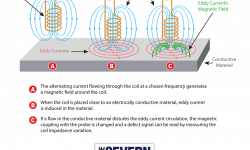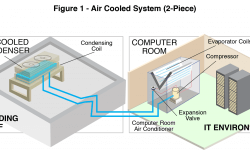In 2015, chilled beam technology was projected to grow nearly double by 2020. Now projections are showing the U.S. will contribute around 28% in chilled beam system demands by 2026. This is largely due to energy efficiency regulations in North America. Currently building energy consumption is about 40% of the total energy consumption in the U.S. As a push toward lower carbon emissions continues to grow, it stands to reason so will technologies that reduce energy consumption. Chilled beams offer major benefits in energy efficiency.
Read more →When it comes to HVAC, the goal is to achieve maximum comfort and increase energy efficiency levels with smart and eco-friendly technology. Each year, building and commercial property owners are seeing their HVAC needs evolve. That’s why it’s important to stay up to date with the latest HVAC trends to ensure you are getting the very best service.
Read more →According to a study by the U.S. Department of Energy, HVAC systems are the largest users of energy in commercial buildings. That being said, the cost of running your building’s HVAC system will be among your greatest expenses, so it’s important to carefully select the components of your HVAC design.
Read more →If you’re in the market for a new commercial HVAC unit, you’ve likely come across dozens of HVAC acronyms. Just like any other line of work, the HVAC industry uses hundreds of acronyms. And, sometimes this can make shopping for a new unit confusing. But, have no fear – we’re here to help by decoding 10 common HVAC acronyms.
Read more →When you run a business and have a commercial HVAC system, it can be hard to keep things cool during the summer. The heat is naturally going to seep in. It’s important to make sure that your HVAC system is working properly so that your employees and customers are comfortable. Read on for some summer HVAC tips that can help prepare you for the warmer weather.
Read more →The term Eddy Current Testing (ECT) uses electromagnetic induction to find flaws and cracks in conductive materials. Specifically, ECT is used in the service and manufacturing industries where tubing, sheet metal, and other slim products created from metal are needed for essential operations. With ECT, electromagnetic fields can detect metal hardness and thickness, heat damage, and more. Testing is completed without harming the test material during the process.
Read more →Direct Digital Control Technology is the control of a building’s conditions through a digital device, typically a computer. It is a system that is commonly aligned with Building Automation Systems. And, it is mainly used in commercial HVAC control and energy management system applications. In a commercial building, Building Automation Systems (BAS) and Direct Digital Control Technology (DDC) work together to provide programmable and precise control of the building’s functions.
Read more →Costs for data center outages rise minute by minute. And, each minute of unplanned downtime can cost upwards of $9,000. However, you can minimize unscheduled downtime and avoid preventable breakdowns with preventative data maintenance. The objective of preventative maintenance is to establish scheduled inspections that identify defects before they become a significant problem. Data centers that don’t schedule planned preventative data maintenance are at a higher risk of asset failure. Read on for some of the best tools for safe and successful preventative data maintenance.
Read more →There is currently a resurgence in the building industry as companies are moving back into the cities, and building codes are becoming more energy efficient driven. Developers are following these codes that encourage less energy use but create more renewable energy on-site.
Read more →Data centers and IT rooms are becoming an integral part of businesses across the globe. And, as technology continues to change and evolve, computing equipment is being created in smaller sizes. However, the smaller size uses more electricity and can generate more heat, which creates a need for heat removal. So, it is essential that such spaces have precision cooling and heat rejection equipment in order for the equipment to stay at an even temperature and avoid overheating. There are several heat removal methods in which cooling equipment can be used to mediate the high heat generated by the computing equipment.
Read more →









